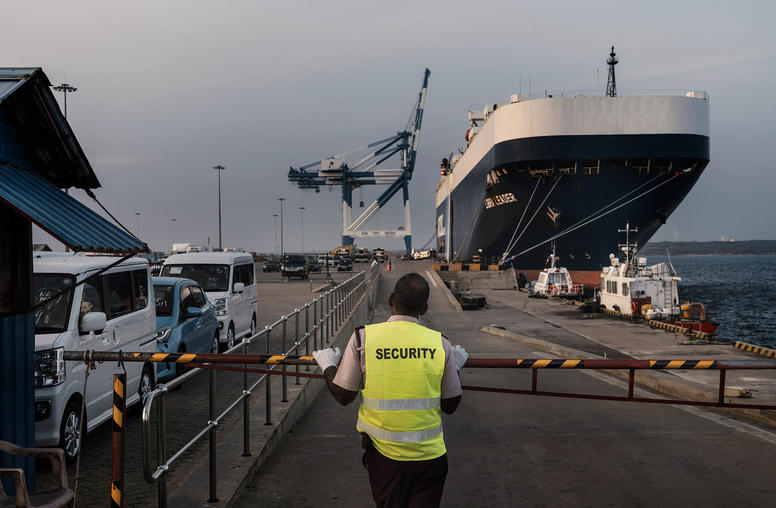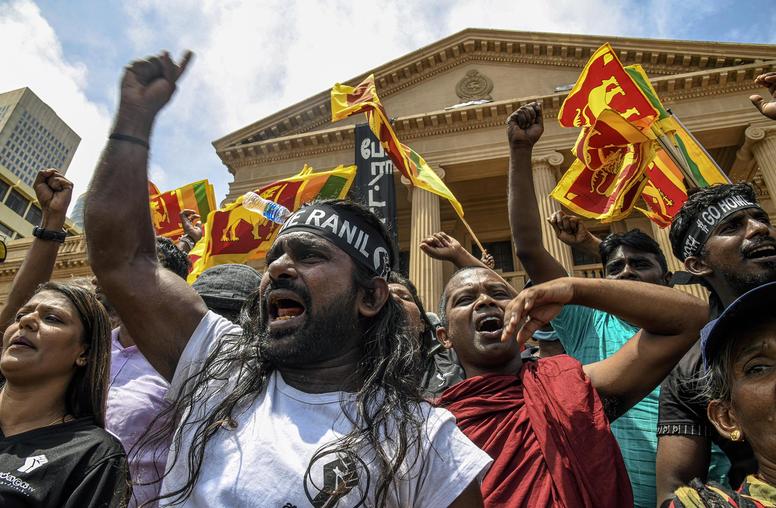On the Issues: Sri Lanka
Recognizing the need to promote peace and minority rights in this conflict-ridden country, on March 23rd and 25th the Institute hosted a group of 17 young Sri Lankan professionals as part of a State Department professional exchange program in conjunction with NGO Relief International. Relief International’s Sri Lanka office selected the participants.
Recognizing the need to promote peace and minority rights in this conflict-ridden country, on March 23rd and 25th the Institute hosted a group of 17 young Sri Lankan professionals as part of a State Department professional exchange program in conjunction with NGO Relief International. Relief International’s Sri Lanka office selected the participants. The religiously and ethnically diverse group ranged in age from 23 to 35, and all 17 are working on minority rights in Sri Lanka. The group consisted of journalists, private sector, public health, and non-profit professionals working for a variety of organizations which include: Associate Newspapers Ceylon Limited, Business for Peace Alliance, Caritas EHED, Central Province Chamber of Commerce, Dialogue TeleKom, District Women Entrepreneur Chamber, EML Consultants Ltd., Facilitating Local Initiatives for Conflict Transformation, Foundation for Co-Existence, Galle Equal Ground, Hellocorps Ltd., Mercy Corps, Ministry of Health, Palm Foundation, Strangers Group Ltd., and Wild Drift Ltd.
For all 17 professionals this was their first time visiting the United States. The USIP two-day training kicked off their stay in the United States and provided the foundation of their training and education for the remainder of their time in the United States. During the training the subject of language and conflict resolution was discussed as most of them have struggled at some point with communication barriers since they are working with minority groups. Age and gender were discussed as the group had a plethora of examples of how they have circumvented obstacles despite their age and/or gender to promote peace. The group came equipped with many examples of their own both challenges and successes in their conflict resolution work. The two-day USIP training honed their conflict resolution skills, introduced them to the United States Institute of Peace and introduced them to the United States at large.
At the closing ceremony former US ambassador to Sri Lanka Ashley Wells attended and provided comments on the state of affairs. He spoke of his positive experience there and the real possibility of a future for the people of Sri Lanka to live without violence. The examples of Northern Ireland and Bosnia were emphasized as conflict-ridden countries that are now living in relative peace. Ambassador Wells expressed his confidence that Sri Lanka could one day be an example as well, with people such as themselves dedicated to the promotion of peace.
USIP Press
- Sri Lanka: The Invention of Enmity
USIP Press, December 1993
Author David Little explores the role religion plays in the conflict between Sri Lankan Buddhists and Hindus, and what can be done to reduce the level of tension and violence. He examines the sources of the conflict; the political, legal, and nongovernmental efforts at reconciliation; and the prospects for a settlement.
Events
- Sri Lanka’s Return to War
January 18, 2008
On January 2, 2008 the government of Sri Lanka announced that it would officially pull out of the 2002 Norwegian-brokered ceasefire agreement it signed with the insurgency group the Liberation Tigers of Tamil Eelam (LTTE). This announcement came in the aftermath of a spate of violence throughout Sri Lanka that rose steeply throughout 2006 and 2007, marked by suicide bombings in and outside of Colombo, political assassinations, military bombardments, and a proliferation of human rights violations perpetrated by various armed actors.
Listen to audio from this event - Constructing an Effective Ceasefire
November 9, 2007
In theory, ceasefires are temporary halts to violence that act as a step toward a wider peace. But in practice, they are more often manipulated as a tool for continued conflict, or broken because they are incompatible with the interests of the warring parties. - In the Footsteps of Gandhi: Creating a Culture of Inter-Religious Peace in Sri Lanka
October 17, 2007
For over two decades, Sri Lanka has been beset with a civil war fought between government forces and a minority insurgent group, the Liberation Tigers of Tamil Eelam (LTTE), which seeks an independent Tamil state on the island country. Although rooted mainly in ethnic, linguistic, and political differences, religion has also come to play a role in the identity-dynamics shaping the conflict and its beleaguered peace process.



